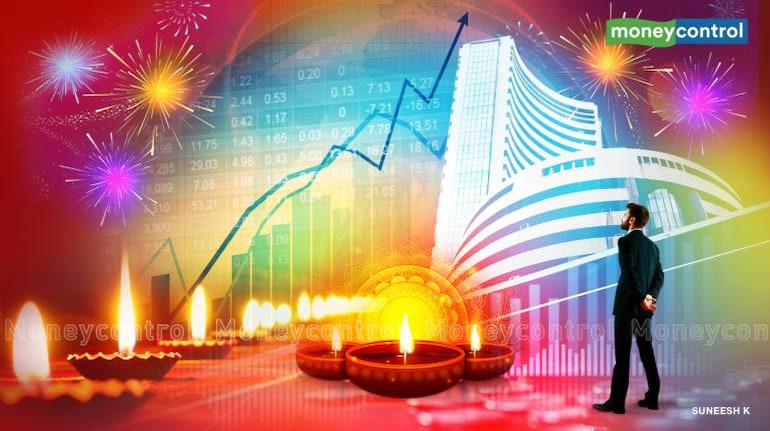
This Diwali, Samvat 2079 will conclude and Samvat 2080 will begin. (Illustration by Suneesh K.)
Vikram Samvat is a calendar system followed by Hindus and Sikhs in the Indian subcontinent, with ‘samvat’ meaning year. This is my 40th Samvat as a Vikram and I no longer feel like a blue-chip, even in my fantasy league portfolio.
This Diwali, Samvat 2079 will conclude and Samvat 2080 will begin, which indicates the beginning of the new year, as per the Hindu calendar. As per the US calendar, it is the day every year when a fake photo of India from space is attributed to NASA.
The origin of this calendar year dates back to an era called 'Vikrama'. Much as I love the sound of that as a Vikram, I can tell you from personal experience that no such era has ever lasted more than 2 business news anchor changes at CNBC TV18.
Mahurat: ‘Mahurat’ means an auspicious time. It is a concept entirely lost on Instagram influencers who post at the most inauspicious of times. In Hindu customs, Mahurat is a time when planets are aligned favourably to ensure positive results. There is usually a huge battle between Mars and Venus to take credit for the favourable alignment while blaming the other planet for all the misalignments. Such misalignments usually end abruptly the moment Venus uploads a new Instagram reel.
Mahurat Trading: To mark the beginning of a new 'samvat', every year the market opens for a special one-hour trading session on the day of Diwali, known as 'Muhurat' trading, or auspicious trading. It's a bit like the hour-long interview to decide arranged marriage rishtas - most of us are in it to win it.
Typically, the Mahurat session is divided into the following parts:
1. Block Deal Session: Where two parties agree to buy/sell a security at a fixed price and inform the stock exchange about it. This is a lot like the classic Bollywood film where the hero’s father fixes the wedding of his son at birth with the villain’s daughter. And then happily informs his son just when he is about to tell his father that he has gotten his girlfriend pregnant and wants to marry her.
2. Pre-Open Session: Where the stock exchange determines the equilibrium price (usually around eight minutes). Ask any vegetable vendor who has suffered an Indian aunty haggling over the equilibrium price for 2 Rs and he will tell you that 8 minutes is also the deadline after which aunty pulls that last-minute desperate gambit of pulling away from the shop while her inner SRK tells her “Agar isse ye kaande bechne hai toh ye mere palatne ka intezaar karega”… And then she realizes in horror “Ya Khuda. Ye toh seedha mujhe ignore karke chai ke tapri pe jaane wala hai”
3. Normal Market Session: The one-hour session where most trading takes place. In the board exams, such trading will usually take place for the answers to the 10-mark question “Why is India not a developed country?”
4. Call Auction Session: Where illiquid securities are traded. A security is termed illiquid if it satisfies the criteria set by the exchange. In the marriage market the criteria set by the exchange for being termed an illiquid security is a humanities degree. Especially if your bio data is an Instagram reel of all your favourite Instagram reels.
5. Closing session: Where traders/investors can place a market order at the closing price. This is also known as the CTC of the last person to be placed on campus. It is often closer to the median salary than that one single Rs 1 crore offer from a consultancy or tech firm which is usually based in the US but shown in Indian rupees before taxes but after fake American accent.
As per several historians, King Chandragupta II conferred upon himself the title of Vikramaditya, also changing the name of that era to 'Vikram Samvat'. Now I am not Chandragupta II but I look forward to the era of ‘Funnycontrol Samvat’. Happy Diwali and happy investing to all my readers!
Funnycontrol | Mahurat trading and a Samvat 2080 glossary of terms - Moneycontrol
Read More

No comments:
Post a Comment